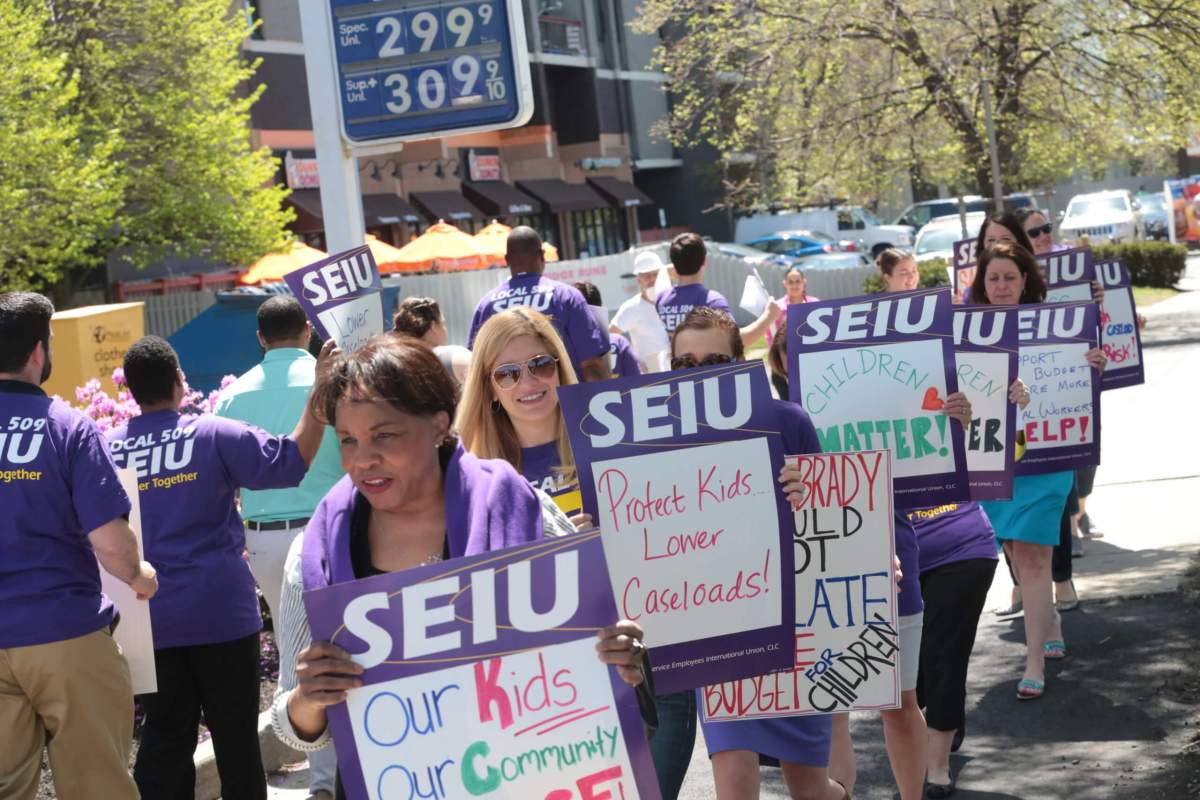Social workers from the Department of Children and Families took to the streets in Cambridge protesting their skyrocketing caseload numbers and demanding program reform, chanting, “caseloads, caseloads, they’re too high. Reduce them now so kids don’t die.” DCF caseloads have spiked to a level social workers say is unmanageable following the disappearance and death of Jeremiah Oliver, a 5-year-old boy in the DCF system who was reported missing in December 2014 and was found stuffed in luggage off of I-90 near Sterling. “After the tragic events surrounding Jeremiah Oliver’s death, we started taking in far more cases than usual, some that wouldn’t normally be handled by DCF, but we have to ensure that these kids are safe,” said Adriana Zwick, a supervisor of case carrying social workers and 20 year employee of DCF. “We opened these floodgates to ensure child safety, but it has overwhelmed and overburdened every social worker in the state.” The initial response following Oliver’s death aimed at cutting down caseloads so social workers could better focus on their cases. But Peter Mackinnon, a 15-year social worker at the Cambridge/Somerville DCF facility, said that the program is operating in crisis mode. “The kids aren’t safe when social workers are this overrun,” Mackinnon said. “When you consider how many children, parents, teachers and therapists each caseworker has to meet with each month, you start to realize that one person is in contact with far too many people.” The national standard set forth by the Child Welfare League of America and the National Association of Social Workers agreed upon a 15-case maximum for social workers. But some social workers in the area have as many as 47 children that they need to lay eyes on once a month at the absolute least. “Most social workers statewide are in crisis level caseload mode. They are handling 20-plus cases and they’re responsible for 30 or 40 kids,” Zwick said.
“That means a social worker has to go to one home to visit one family, talk about their problems, check in with the kids and see how they are doing. We need to spend a good hour in there, which is preventative care,” Zwick said. “This keeps kids safe and it keeps them in their homes. But we’re lucky to get 15 minutes to see if everyone is alive and are ok and there isn’t something blatantly. Then we have to jet out to the next home and repeat the process.” Picketers said that they are entering the crunch time for reform as the Massachusetts Senate starts their debate over the annual budget.
SIEU 509 spokesman Jason Stephany said there are about 3,000 social workers in the field, but an additional 375 are needed.
“To the credit of the Baker admin, they looked at the budget and saw that they had hired more than what the budget allotted so they put in enough money to ensure that those social workers wouldn’t be laid off, but they didn’t have funding above and beyond that,” Stephany said. “The department says we need $29 million in order to get these caseloads down to a safer more manageable level. It’s an investment in children and families in the commonwealth.”
Social workers call upon Mass. Senate for DCF reform, aid in caseload crisis

Nic Czarnecki/Metro


















